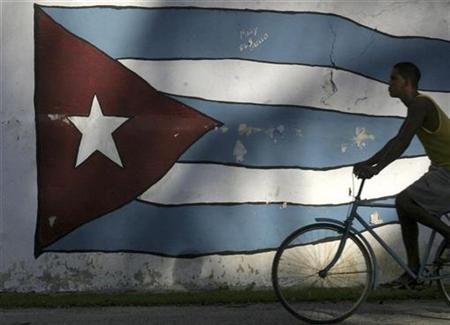
My colleague Patrick Doherty decided to push back on the comments made by Cuba’s Ambassador in Geneva today that Human Rights Watch was somehow a tool of the U.S. government.
Doherty made the case that Human Rights Watch, Amnesty International and other groups concerned with improving the human condition in Cuba actually oppose the United States embargo of Cuba and are as such bedfellows along with a growing coalition of US State governors, travel and agricultural groups — as well as serious foreign policy strategists — who think that this embargo significantly undermines American interests. I am glad that HRW and these other NGOs see the perversity of the US embargo and how it has damaged the human rights of Cuban citizens.
Human Rights Watch also made clear that its funding is one hundred percent private.
All that said, there is a tendency on all sides of the US-Cuba debate to fall into a circular, never ending debate about what place the human rights question should have in our debate to end the Embargo. That is not my lens.
I believe that the human rights of Cuban citizens are harmed by the US embargo — but that has for me less significance than the geopolitical and geostrategic consequences of maintaining a ‘failed policy’ that has hurt American interests.
I do not believe that we should be focusing on fine-tuning or manipulating the internal dynamics of another government with tools like the embargo. I don’t share my colleague Patrick Doherty’s practice of nudging Cuba one way or another on its internal dynamics.
I remember when Francis Fukuyama told me when he was taking on Charles Krauthammer and Bill Kristol and leaving the fold of their brand of neoconservatism, he said that “In the old days with Irving Kristol, we knew that government policy couldn’t affect the school test scores and social outcomes in Anacostia — so certainly, it made no sense to think we could meddle with Iraq’s dynamics to do the same. . .” I think the same is true about Cuba.
At this point, we need ‘macro jumps’ in US-Cuba relations, and we need to move to a different position of interest-driven mutual respect. I believe that increased commerce and people to people exchange will benefit both sides of the US-Cuba relationship, but we should not get lost in debates about how Cuban government officials see human rights NGOs.
Human Rights Watch needs to pursue its agenda, and I respect that — and various Cuban government officials may be on the defensive and may not want to acknowledge the positives that could come from HRW and other groups opposing the embargo as they know that ultimately, these groups do want to work to transform the internal political conditions of Cuba.
But that is not an efficacious lens through which to frame the opportunities and constraints in changing US-Cuba policy.
I keep reminding people that today Cuba is not exporting guns and arms and revolution; it is exporting doctors.
It is imperative that we stop deluding ourselves to think that the embargo is a leverage point or that the embargo can effect internal change in Cuba. This is a fallacy.
This is an important debate — and I look forward to engaging Patrick Doherty and others on this subject — but I felt it important for me to state my views that the way to move Cuba policy forward and to encourage Cuba forward is not to tell it to trade prisons for hotels.
That’s an internal decision of Cuba that it should wrestle with when and if broader public exchange and communications take place between Americans and Cuban citizens. There is very little trust or common understanding between the Cuban and American governments — and fueling a little tit-for-tat escalation of words is distracting and undoes the broader dynamics of finally ending this anachronistic embargo.
That is the imperative.
— Steve Clemons


5 comments on “What Is Most Important in the US-Cuba Policy Narrative?”